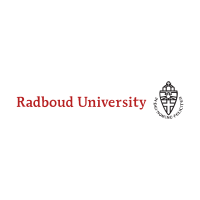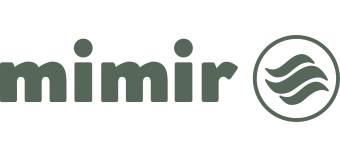
Vacatures geplaatst door Radboud Universiteit
Mimir verzorgt het geautomatiseerde beheer van vacatures op vacaturebanken voor Radboud Universiteit.
Laatste vacatures
Postdoc Position: Size Scaling of Environmental-Economic Systems
The overall aim of ’The Power of Size’ is to establish relationships describing the emission, fate and effects of pollutants as a function of size. We intend to derive overarching scaling principles that apply across multiple disciplines, including hydrology, socioeconomics, toxicology, and ecology. To achieve this, you will collect data from databases, reviews, articles, and reports. You will then derive and compare statistical and mechanistic relationships. As the lead author, you will publish your results in scientific journals and present your main findings at international conferences.
This vacancy involves Tasks 1.1-1.3 of ‘The Power of Size’ project, which are aimed at deriving theoretical and empirical scaling relationships linking resource and pollutant flows to the size of systems such as cities and river catchments. Examples of pilot studies can be found in Environmental Science and Technology 45: 751–754 and Journal of Hydrology 544: 479-487. You will be part of the WP1 team consisting of Prof. Jan Hendriks, Prof. Birka Wicke, Dr Steef Hanssen, one PhD candidate and another postdoctoral researcher, and also collaborate with the PhD candidates and postdoctoral researchers of WP2 and WP3.
Your work will be theory- and data-driven, contributing to both fundamental research and regulatory applications. On the one hand, you will help improve the understanding of the dominant role size plays in system functioning. On the other hand, the relationships you develop will support urgent risk assessment for over 1,000 substances, across more than 1,000 species (including humans) and 1,000 sites worldwide.
To further improve your research and assessment skills as a postdoctoral researcher, you may attend courses offered by the Graduate School of the Radboud Institute for Biological and Environmental Science. You will supervise students and assist in teaching courses at the BSc/MSc level, which may take up to 10% of your working time (usually less).
14 sollicitaties
0 views
04-07-2025 Radboud Universiteit
Postdoc Position: Size Scaling of Environmental-Economic Systems
The overall aim of ’The Power of Size’ is to establish relationships describing the emission, fate and effects of pollutants as a function of size. We intend to derive overarching scaling principles that apply across multiple disciplines, including hydrology, socioeconomics, toxicology, and ecology. To achieve this, you will collect data from databases, reviews, articles, and reports. You will then derive and compare statistical and mechanistic relationships. As the lead author, you will publish your results in scientific journals and present your main findings at international conferences.
This vacancy involves Tasks 1.1-1.3 of ‘The Power of Size’ project, which are aimed at deriving theoretical and empirical scaling relationships linking resource and pollutant flows to the size of systems such as cities and river catchments. Examples of pilot studies can be found in Environmental Science and Technology 45: 751–754 and Journal of Hydrology 544: 479-487. You will be part of the WP1 team consisting of Prof. Jan Hendriks, Prof. Birka Wicke, Dr Steef Hanssen, one PhD candidate and another postdoctoral researcher, and also collaborate with the PhD candidates and postdoctoral researchers of WP2 and WP3.
Your work will be theory- and data-driven, contributing to both fundamental research and regulatory applications. On the one hand, you will help improve the understanding of the dominant role size plays in system functioning. On the other hand, the relationships you develop will support urgent risk assessment for over 1,000 substances, across more than 1,000 species (including humans) and 1,000 sites worldwide.
To further improve your research and assessment skills as a postdoctoral researcher, you may attend courses offered by the Graduate School of the Radboud Institute for Biological and Environmental Science. You will supervise students and assist in teaching courses at the BSc/MSc level, which may take up to 10% of your working time (usually less).
Indeed
0 sollicitaties
0 views
04-07-2025 Radboud Universiteit
Postdoc Position: Size Scaling of Environmental-Economic Systems
The overall aim of ’The Power of Size’ is to establish relationships describing the emission, fate and effects of pollutants as a function of size. We intend to derive overarching scaling principles that apply across multiple disciplines, including hydrology, socioeconomics, toxicology, and ecology. To achieve this, you will collect data from databases, reviews, articles, and reports. You will then derive and compare statistical and mechanistic relationships. As the lead author, you will publish your results in scientific journals and present your main findings at international conferences.
This vacancy involves Tasks 1.1-1.3 of ‘The Power of Size’ project, which are aimed at deriving theoretical and empirical scaling relationships linking resource and pollutant flows to the size of systems such as cities and river catchments. Examples of pilot studies can be found in Environmental Science and Technology 45: 751–754 and Journal of Hydrology 544: 479-487. You will be part of the WP1 team consisting of Prof. Jan Hendriks, Prof. Birka Wicke, Dr Steef Hanssen, one PhD candidate and another postdoctoral researcher, and also collaborate with the PhD candidates and postdoctoral researchers of WP2 and WP3.
Your work will be theory- and data-driven, contributing to both fundamental research and regulatory applications. On the one hand, you will help improve the understanding of the dominant role size plays in system functioning. On the other hand, the relationships you develop will support urgent risk assessment for over 1,000 substances, across more than 1,000 species (including humans) and 1,000 sites worldwide.
To further improve your research and assessment skills as a postdoctoral researcher, you may attend courses offered by the Graduate School of the Radboud Institute for Biological and Environmental Science. You will supervise students and assist in teaching courses at the BSc/MSc level, which may take up to 10% of your working time (usually less).
AcademicTransfer
9 sollicitaties
0 views
04-07-2025 Radboud Universiteit
Postdoc Position: Ecosystem Size Spectra Analysis
The overall aim of ’The Power of Size’ is to establish relationships describing the emission, fate and effects of pollutants as a function of size. We intend to derive overarching scaling principles that apply across multiple disciplines, including hydrology, socioeconomics, toxicology and ecology. To achieve this, you will collect data from databases, reviews, articles and reports. You will then derive and compare statistical and mechanistic relationships. As the lead author, you will publish your results in scientific journals and present your main findings at international conferences.
This vacancy involves Task 3.1 of ‘The Power of Size’ project, which is aimed at deriving theoretical and empirical scaling relationships linking species richness, trophic level productivity and community biomass to size spectra under stress. Examples of the approach can be found in Ecological Modelling 205: 196-208 and Ecological Indicators 79: 114-121. You will be part of the WP3 team consisting of Prof. Jan Hendriks, Dr Wilco Verberk, Dr Aafke Schipper, and one PhD candidate, and also collaborate with the PhD candidates and postdoctoral researchers of WP1 and WP2.
Your work will be theory- and data-driven, contributing to both fundamental research and regulatory applications. On the one hand, you will help improve the understanding of the dominant role size plays in system functioning. On the other hand, the relationships you develop will support urgent risk assessment for over 1,000 substances, across more than 1,000 species (including humans) and 1,000 sites worldwide.
To further improve your research and assessment skills as a postdoctoral researcher, you may attend courses offered by the Graduate School of the Radboud Institute for Biological and Environmental Science. You will supervise students and assist in teaching courses at the BSc/MSc level, which may take up to 10% of your working time (usually less).
Indeed
0 sollicitaties
0 views
04-07-2025 Radboud Universiteit
Postdoc Position: Ecosystem Size Spectra Analysis
The overall aim of ’The Power of Size’ is to establish relationships describing the emission, fate and effects of pollutants as a function of size. We intend to derive overarching scaling principles that apply across multiple disciplines, including hydrology, socioeconomics, toxicology and ecology. To achieve this, you will collect data from databases, reviews, articles and reports. You will then derive and compare statistical and mechanistic relationships. As the lead author, you will publish your results in scientific journals and present your main findings at international conferences.
This vacancy involves Task 3.1 of ‘The Power of Size’ project, which is aimed at deriving theoretical and empirical scaling relationships linking species richness, trophic level productivity and community biomass to size spectra under stress. Examples of the approach can be found in Ecological Modelling 205: 196-208 and Ecological Indicators 79: 114-121. You will be part of the WP3 team consisting of Prof. Jan Hendriks, Dr Wilco Verberk, Dr Aafke Schipper, and one PhD candidate, and also collaborate with the PhD candidates and postdoctoral researchers of WP1 and WP2.
Your work will be theory- and data-driven, contributing to both fundamental research and regulatory applications. On the one hand, you will help improve the understanding of the dominant role size plays in system functioning. On the other hand, the relationships you develop will support urgent risk assessment for over 1,000 substances, across more than 1,000 species (including humans) and 1,000 sites worldwide.
To further improve your research and assessment skills as a postdoctoral researcher, you may attend courses offered by the Graduate School of the Radboud Institute for Biological and Environmental Science. You will supervise students and assist in teaching courses at the BSc/MSc level, which may take up to 10% of your working time (usually less).
9 sollicitaties
0 views
04-07-2025 Radboud Universiteit


